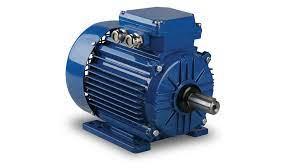
When purchasing industrial electric motors, several key considerations must be met. You need to know the speed, torque and power requirements for your application as well as review its voltage needs. Electric motors are widely used to power mixers, cranes, machine tools, and generators. Both AC and DC models are available.
Electric Motors For Sale
Electric motors are essential components for industrial applications like mixers, cranes and machine tools. JM Industrial provides both used and surplus electric motors at significantly reduced prices than their new counterparts - these industrial motors have been thoroughly rebuilt to ensure high quality and performance - providing you with a great way to cut costs and lower carbon footprint while finding exactly what you are searching for more quickly! Use our search tool to narrow your options by horsepower/RPM/Speed/Frame size/voltage and enclosure - easily finding what you are searching for!
Used Electric Motors
An electric motor can power a variety of devices and equipment such as fans, mixers, industrial machines and cranes. Electric motors are more energy-efficient than their ICE counterparts and produce no harmful emissions; additionally they can operate in environments unsuited to traditional ICE engines and continue working up to 30,000 hours without major repairs being needed.
These benefits can help lower operating costs and boost productivity, with many businesses opting for used or surplus electric motors as they tend to be significantly less costly and allow them to meet business needs without breaking their budget.
JM Industrial provides used industrial electric motors that have been fully refurbished prior to being put up for sale. This ensures they remain fully functional and provide similar performance as new motors but at a much reduced cost - an environmentally-friendly approach as manufacturing new industrial motors requires considerable energy consumption.
Surplus Motors
Electric motors convert electrical energy to mechanical energy that can be used to operate equipment and systems in industrial settings. Electric motors are common components in centrifugal pumps, fans, blowers and compressors as well as machine tools and cranes - applications where electric motors play an essential part.
Before shopping for an electric motor, it is important to assess its specific application and the performance criteria you wish to fulfill. This will enable you to select an appropriate size, power and mounting option - whether foot vs flange. In addition, be aware of how much voltage is necessary for its proper function.
Purchase of industrial electric motors from surplus sales providers can be beneficial in many ways. One benefit is their quicker turnaround time compared to new units; and, their warranties may even surpass those offered with brand new motors.
Purchase of industrial electric motors for sale from PT houses can also be more cost-effective. They typically offer greater discounts than EASA repair shops, and as large organizations they often get better pricing from manufacturers than individual shops can; passing on those savings to clients and providing small businesses with AC motors an added advantage.
Industrial Electric Motors
Industrial electric motors convert electrical energy to mechanical motion for machinery and equipment use. They're often found in refrigeration, oil & gas processing facilities, data centers and refrigeration companies - as well as being powered by DC or AC sources such as grid electricity or inverters/generators.
Instead of converting mechanical energy directly to electricity, motors convert electrical current to mechanical energy through electromagnetic induction. Two popular industrial electric motors include series and shunt motors; the smaller types can often be found in vacuum cleaners and sewing machines while larger versions may be found in centrifugal pumps, fans, compressors or conveyor belts.
At the core of any industrial motor purchase decision is its energy efficiency level. Highest-efficiency motors can achieve up to 35% improvement in energy efficiency - double its use could reduce global CO2 emissions by one gigatonne by 2030! For optimal performance, proper selection, installation and use should occur alongside periodic maintenance for optimal results. Additionally, an industrial electric motor requires additional components, including variable frequency drives that allow users to quickly alter speed and torque as necessary and power transmission systems to move output of motor to machinery. All of these will ensure your processes run efficiently at all times.
Electric motors convert electrical energy to mechanical energy through opposing magnetic fields. Their rotor consists of coil wire windings wound around a soft iron ferromagnetic core that, when charged with current, form magnetic poles and produce rotational torque. buy electric motor from surplusrecord industrial electrical motors are the best buy of electric motor used electric motor for sale at surplusrecord. surplus motor are the best Motors An H-field from one magnet pushes and pulls on opposite poles of another magnet with equal strength and magnitude, creating a vector cross product between their H-fields that can be calculated using the right-hand rule. Ideal magnetic permeability materials have dipoles with identical magnetic fields (B-field), making up the basis of an electric motor.


